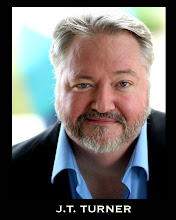I am always so delighted when people tell me they not only read this blog, but that they employ the advice we give here. (And by "we" I mean me, "we" just sounds like there is more to this blog). And better yet I love when people ask questions! So after a recent post about auditioning and monologue selection, a young actress wrote to ask for even more info on monologue preparation. I am so happy to oblige. So here are a few more ideas for you to test, adapt, and make your own.Now this is for prepared audition pieces that you have time to put work into, cold readings fall into another category.
Having selected an audition piece, (and please see prior blogs about selection), what sort of work might you do to build a character about the piece? As mentioned before, always, always, always...how often? Always! Always, start by speaking the words aloud. Put the words into the air, let them travel from you to the Universe. Things will often change when you take the simple step of invoking the words. Then, try this with the piece:
Make 3 lists for the piece, Facts, Assumptions and Guesses. Facts are the things you clearly know about the character, usually things the author indicates or other characters do. (John is a tall, middle aged man with a quirky smile). Assumptions are things that seem to be indicated, like the way John speaks indicates he is white, or he has a funny sense of humor based on his lines. Guesses are where your imagination fills in the blanks, perhaps a backstory about why the character is the way they are, or perhaps the character reminds you of a person you know or a celebrity you could borrow some pieces from to flesh the character out. Guesses should NEVER conflict with things the author has told you, or that the script states.
Now try to apply the 4 W's to the monologue piece. they are:
Where- physically where does this speech take place?
When- Time period, time of day, season?
Who- is the character talking too?
What-do you want from this speech? What does your character say these words for? There must always be a reason for the character to talk, what is the reason for in this monologue?
Sometimes, we can get to the next question, HOW? Meaning how will your character go about getting what they want, but that often is work that we save for full blown roles rather than auditions. But occasionally, the HOW is accessible in the audition piece, and fun to play with.
Try the above, you may just enjoy the process!
J.T. Turner, The Actors Sensei
Acting and speech lessons for all ages




